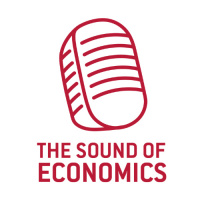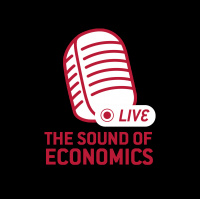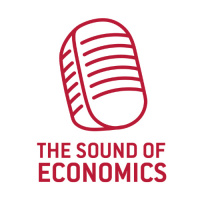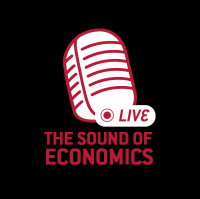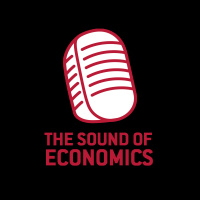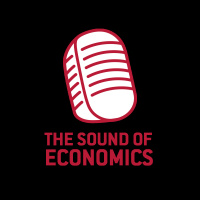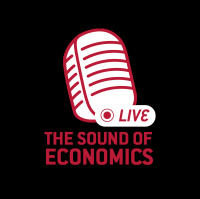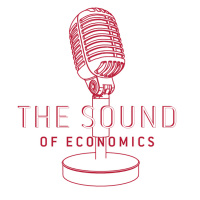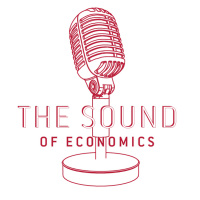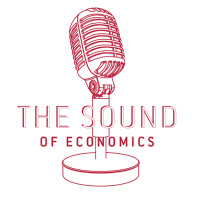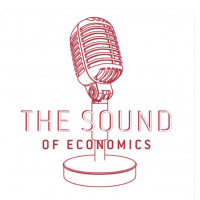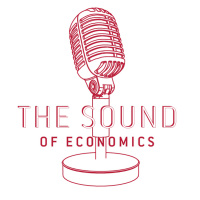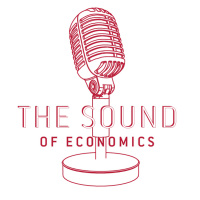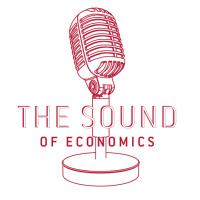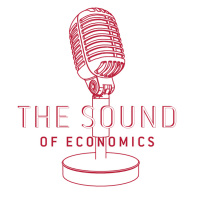Synopsis
Bruegel is the European think tank working in the field of international economics. Established in 2005, Bruegel is independent and non-doctrinal. It seeks to contribute to European and global economic policy-making through open, fact-based and policy-relevant research, analysis and debate.
Episodes
-
Challenges and growth of China's private sector
09/06/2021 Duration: 38minThis episode is part of the ZhōngHuá Mundus series of The Sound of Economics. ZhōngHuá Mundus is a newsletter by Bruegel, bringing you monthly analysis of China in the world, as seen from Europe. Sign up now to receive it in your mailbox! Since 2010, the landscape of China’s largest companies has shifted away from the dominance of state-owned enterprises towards a more diverse and complex landscape with an increasing number of mixed-ownership enterprises and non-public enterprises. This evolution, however, has been far from linear with Chinese private companies facing several challenges. In this episode, SHAN Weijian, Chairman and CEO of PAG, joins Giuseppe Porcaro and Alicia García-Herrero from Hong Kong, to share his insights on how the private sector has progressed and the road ahead.
-
Belarus: a test for Europe’s foreign policy?
01/06/2021 Duration: 27minThe recent forced landing of an internal EU flight to arrest opposition activist Roman Protasevich is the latest escalation by a President who is consolidating power in the wake of unrest following the disputed results of the 2020 presidential election. The EU and international community reacted with further retaliatory sanctions and a flight ban over and by Belarussian airlines. Where does EU external action go from here? This week, Bruegel Director Guntram Wolff is joined by Sławomir Dębski, Director of the Polish Institute of International Affairs (PISM), to discuss Belarus’ fractious relationship with its neighbours and put the events of the last year into the wider historical and European context.
-
Towards a global corporate tax?
26/05/2021 Duration: 25minThe idea of a global corporate tax has been floating around for decades, but a US proposal for a 15% of a global minimum tax rate means the proposal is now a serious possibility. This would affect both direct and indirect taxation, broader tax policy issues, and tax administration. In this live episode of The Sound of Economics, Giuseppe Porcaro is joined by Bruegel scholars Rebecca Christie and Niclas Poitiers, to discuss the outlook of global corporate tax and its possible outcomes. Relevant publication: Christie, R. (2021) ‘International tax debate moves from digital focus to global minimum,’ Bruegel Blog, 27 May
-
A stronger euro comes with more responsibility
19/05/2021 Duration: 29minEuropean strategic autonomy is probably the single most used watchword in European circles, if only because of lack of consensus about what it entails. US bashing for some, a more confident and independent EU for others, the concept has well and truly moved out of the security and defence area into every area of EU policy. This is most apparent in the debate around the international role of the euro, where institutional thinking has shifted fast in the past couple of years. Is it inevitable? In this episode of The Sound of Economics, Bruegel Director Guntram Wolff is joined by Franziska Brantner, Member of the Bundestag and Europe spokesperson for Alliance 90/The Greens’ parliamentary group, to talk about sovereignty, the international role of the euro and the geopolitical repercussions of the EU’s green deal. Relevant publications: Claeys, G. and G. Wolff (2020) ‘For the euro, there is no shortcut to becoming a dominant currency’, Bruegel Blog, 13 October Claeys, G. and G.B. Wolff (2020) ‘Is the COVID-
-
New kid in the playground: China's antitrust push
12/05/2021 Duration: 28minThis episode is part of the ZhōngHuá Mundus series of The Sound of Economics. ZhōngHuá Mundus is a newsletter by Bruegel, bringing you monthly analysis of China in the world, as seen from Europe. Sign up now to receive it in your mailbox! China’s growing economic power is causing great anxiety in the West: European regulators are tightening the rules on takeovers by Chinese state-owned giants, while the United States is imposing aggressive sanctions on leading Chinese technology firms such as Huawei, ByteDance (TikTok) and Tencent (WeChat). In this episode of The Sound of Economics, Bruegel’s Alicia García-Herrero, Mario Mariniello and Giuseppe Porcaro make the virtual trip to the enclave of Hong Kong, where they are joined by Angela Huyue Zhang, an expert on Chinese law and the author of “Chinese Antitrust Exceptionalism: How the Rise of China Challenges Global Regulation”. She draws on her experience of examining how Chinese exceptionalism, as manifested in the way China regulates and is regulated, i
-
The Sound of Gita Gopinath
06/05/2021 Duration: 35minIMF Chief Economist Gita Gopinath joins Bruegel Director Guntram Wolff for this Live recorded session. They were able to discuss the uneven recovery from the pandemic. In the latest World Economic Outlook, the IMF warns that even though the global economy is on firmer ground, recoveries are diverging dangerously across and within countries, as economies with slower vaccine rollout, more limited policy support, and more reliance on tourism do less well. Global prospects remain highly uncertain one year into the pandemic. The outlook depends not just on the outcome of the battle between the virus and vaccines—it also hinges on how effectively economic policies deployed under high uncertainty can limit lasting damage from this unprecedented crisis. Bruegel would like to thank the International Monetary Fund for co-hosting this recording. This podcast was recorded with a live audience on clubhouse. Follow The Sound of Economics club on Clubhouse for the latest and regular rooms and high level policy co
-
Money, money, money!
30/04/2021 Duration: 26minWhat is a central bank digital currency (CBDC)? How is it different from the money in a private bank account, or from cryptocurrencies? What do consumers stand to gain from CBDCs? Have cryptocurrencies enabled the creation of the technology needed to guarantee anonymity, privacy and security? To debunk the myths and get to the bottom of the hows and the whys of CBDCs, this week Giuseppe Porcaro is joined by Bruegel Deputy Director Maria Demertzis and Senior Fellow Gregory Claeys who will tell us just how likely digital currency is to replace the money under our mattress. Relevant publications and event: Demertzis, M. (2021) ‘Central bank currencies going digital’ Claeys, G. and M. Demertzis (2019) ‘The next generation of digital currencies: in search of stability’, Policy Contribution, European Parliament Disruption or transformation: the impact of a digital euro on the financial system with Guntram Wolff and Fabio Panetta See more relevant Bruegel research on Digital Currencies.
-
Africa's battle with COVID-19
21/04/2021 Duration: 20minBefore the pandemic, Africa was experiencing unprecedented economic growth and poverty reduction. While many economies have faced disruption around the globe, emerging economies face an even tougher challenge because they lack the tools at the disposal of developed countries, whether that be vaccines, macroeconomic liquidity or the ability of the labour market to work from home. The global nature of the pandemic requires a global response. This January, Bruegel Director Guntram Wolff and Vera Songwe, Executive Secretary of the Economic Commission for Africa were appointed by the Italian G20 Presidency to the High Level Independent Panel on financing the global commons for pandemic preparedness and response, tasked with identifying gaps in the financing system for the global commons for pandemic prevention, surveillance, preparedness and response; and proposing actionable solutions to meet these gaps on a systematic and sustainable basis. In this episode of The Sound of Economics, Vera shares her insigh
-
The idea of Europe: more than a feeling?
16/04/2021 Duration: 01h05minIn a recent set of two Bruegel publications Giuseppe Porcaro, Emmanuel Mourlon-Druol, Enrico Bergamini and Francesco Papadia set out to understand exactly how europeanised public debate in national conversations actually is. With no quantitative indicators, they used a whole set of 'imperfect proxies' such as analysis of national newspapers to give them additional elements alongside the voters turnout, and existing eurobarometers surveys to understand just how strong citizens’ attachment to the European Union is. In this episode of The Sound of Economics LIVE, Giuseppe and Emmanuel are joined by two guests who with hands on experience in finding this 'European public sphere': Jaume Duch Guillot, the Spokesperson and Director General for Communication at the European Parliament, and Mick ter Reehorst, founder of 'Are We Europe', a pan-European publication that focuses on 'border-breaking' stories. Relevant publications: Bergamini, E. and E. Mourlon-Druol (2021) ‘Talking about Europe: exploring 70 years o
-
A digital yuan?
14/04/2021 Duration: 30minThis episode is part of the ZhōngHuá Mundus series of The Sound of Economics. ZhōngHuá Mundus is a newsletter by Bruegel, bringing you monthly analysis of China in the world, as seen from Europe. Sign up now to receive it in your mailbox! A digital currency has been a heated discussion among central banks around the globe, and China is no exception. Where does Renminbi stand in the debate, what's next and what would be the implications of a digital yuan? Professor ZHU Min, Chair of the National Institute of Financial Research at Tsinghua University and former Deputy Managing Director of the International Monetary Fund, shares his insight with Bruegel Director Guntram Wolff and Senior Fellow Alicia García-Herrero. Relevant event: Disruption or transformation: the impact of a digital euro on the financial system with Guntram Wolff and Fabio Panetta
-
The future of CAI
07/04/2021 Duration: 17minRecent sanctions and counter-sanctions between the EU and China have put the future of the Comprehensive Agreement on Investment (CAI) in doubt. Where do the parties go from here? In this episode of the Sound of Economics, Bruegel Director Guntram Wolff is joined by Mikko Huotari, Executive Director of MERICS - Mercator Institute for China Studies, to talk about the future of the agreement, the geopolitics at play and the role of the United States.
-
To infinity and beyond: the European space sector and industrial policy
31/03/2021 Duration: 34minThis is a very special moment for space exploration. The beginning of April will see the maiden flight of the first helicopter to another planet. The Artemis accords will mean that man will be back on the moon before long. The European Space Agency is building Daedalus, the first robot that will crawl inside lunar caves. The United Arab Emirates and India have successfully entered Mars’ orbit on their first try. Elon Musk has just stated that he will land his starship there before 2030. We are in the midst of a new space race, this time not as a proxy of the Cold War of the 60s, but as a multiplication of the actors, both private as well as state actors across the globe enter the realm of space. This week, Giuseppe Porcaro host of The Sound of Economics (and self acclaimed 'space geek') and Reinhilde Veugelers, senior fellow at Bruegel, have the pleasure of hosting Michel Praet, Head of the European Space Agency (ESA)’s Brussels Office, Jérôme Béquignon and Eleni Paliouras, also from ESA’s EU Relations
-
Gender gap in financial literacy: a lack of knowledge or confidence?
24/03/2021 Duration: 29minWomen are less financially literate than men. But does this gap reflect a lack of knowledge or a lack of confidence? To find out Maria Demertzis, deputy director of Bruegel is joined by Annamaria Lusardi, Professor of Economics and Accountancy at the George Washington University and non-resident fellow at Bruegel and Maarten van Rooij, senior economist at the Dutch Central Bank in The Sound of Economics. Annamaria and Maarten explain their findings in a recently published paper that about one-third of the financial literacy gender gap can be explained by women’s lower confidence levels. Relevant publication: Bucher-Koenen F., R. Alessie, A. Lusardi and M. Rooij (2021) ‘Fearless woman: financial literacy and stock market participation’.
-
Keeping momentum on good governance
17/03/2021 Duration: 24minPandemic aside, the past year has seen renewed discussions in Europe on transparency and good governance as the EU takes an unprecedented role in health policy and procurement and in the creation of common debt. As part of an ongoing effort to capture a wide range of views from the European Parliament, this week in The Sound of Economics Guntram Wolff talks to Vice President of Renew Europe and MEP for Hungary, Katalin Cseh to discuss all things governance, human rights, and transparency of vaccine purchasing.
-
Low interest rates: a transatlantic phenomenon
10/03/2021 Duration: 39minMaria Demertzis and Nicola Vegi join Giuseppe Porcaro to talk about their recent research on low interest rates, declining productivity growth and how to tackle this. In both Europe and the United States, interest rates have been declining for more than fifteen years. For much of this period, real interest rates have been negative and they are expected to remain negative for at least another decade. The literature associates this decline in interest rates with a similarly protracted decline in productivity. But the decline in productivity appears paradoxical given major technological advances. The structural factors behind the downward pressure on interest rates imply that macroeconomic policy will have a reduced role in managing aggregate demand. Monetary policy in the euro area will be more about preventing financial fragmentation and less about stimulating demand. Equally, fiscal policy will have more of a supporting rather than stimulating role. Tackling the structural decline in market dynamism
-
Macroeconomic outlook: are we back on track?
05/03/2021 Duration: 46minThis podcast episode is part of Bruegel’s macroeconomic outlook series of The Sound of Economics, in which we bring you regular analysis of all things macro and fiscal policy. This February, the European Commission published the Winter 2021 Economic Forecast with the estimation of a 3.7% increase in GDP in the EU in 2021. While this means a recovery from the pandemic, economic uncertainty still remains significant. On the other side of the globe, the Biden administration has announced a $1.9 trillion fiscal package. Would this result in inflation risks? How will this affect European economies? And, what fiscal intervention is needed in the euro area? Maria Demertzis, Deputy director of Bruegel, is joined by Elina Ribakova, Deputy Chief Economist at the Institute of International Finance, Christian Odendahl, Chief economist at the Centre for European Reform and Grégory Claeys, senior fellow at Bruegel to discuss the Commission forecast, recent US fiscal package and their insights of the macroeconomic
-
Will China fall into the middle/high income trap?
03/03/2021 Duration: 40minThis episode is part of the ZhōngHuá Mundus series of The Sound of Economics. ZhōngHuá Mundus is a new newsletter by Bruegel, bringing you monthly analysis of China in the world, as seen from Europe. Sign up now to receive it in your mailbox! The middle-income trap describes a situation in which a country, having attained a certain income level, gets stuck there (due to given advantages). The high-income trap is of a similar nature, because although the positioning of these economies might be more advantageous to begin with, they find it difficult to promote innovation in manufacturing or upgrade to higher value-added services to remain competitive and provide benefits to a wider spectrum of society. In this episode of The Sound of Economics, Giuseppe Porcaro and Alicia García-Herrero are joined by Syaru Shirley Lin, Compton Visiting Professor in World Politics at the Miller Center of Public Affairs at the University of Virginia. They discuss the middle/high-income trap in East Asia, and especially in
-
Can central banks save the planet?
24/02/2021 Duration: 37minCentral bankers now seem keen to take on responsibility for policy objectives they have previously shied away from – in particular, tackling climate change. European Central Bank President Christine Lagarde acknowledged in January that central bankers will have to look beyond their traditional duties to address the challenge. ECB Executive Board Member Isabel Schnabel said in September 2020 that central banks should be an active part of the collective effort to reduce carbon emissions. Executive Board Member Fabio Panetta said ECB analysis can help make climate-risk valuations more accurate. Should central banks continue accommodating corporate bonds and bank loans of high carbon companies as collateral, or should they reduce them? Giuseppe Porcaro, is joined by Rebecca Christie, Jean Pisani-Ferry and Dirk Schoenmaker to discuss the hot topic of the role of central banks in greening finance and possibly contribute to decarbonisation. The three guests of this episode recently published a series of bl
-
So long credit support?
17/02/2021 Duration: 29minCOVID-19 has caused unprecedented disruption to business. Since the first lockdowns, governments have used credit support programmes as the main instrument to mitigate the liquidity shock businesses have been facing. Have the programmes worked? Bruegel Director Guntram Wolff is joined by Bruegel's very own Julia Anderson, Francesco Papadia and Nicolas Véron to talk about their research into credit support programmes in Europe’s five largest economies. They share their findings with us as well as possible policy implications. Related research: Anderson, J., F. Papadia and N. Véron (2021) ‘COVID-19 credit-support programmes in Europe’s five largest economies, Working Paper 03/2021, Bruegel Dataset, Loan guarantees and other national credit-support programmes in the wake of COVID-19 Anderson J., Papadia F. and Véron N. (2020) ‘Government-guaranteed bank lending six months on’, Bruegel Blog, 29 September
-
From support to recovery: national fiscal policy in the wake of COVID-19
10/02/2021 Duration: 38minAcross the Atlantic, EU member states have been discussing a recovery plan since last spring, striking an agreement over the summer to create a €750 billion pandemic recovery fund. Hard-pressed EU capitals must now submit detailed plans to Brussels to unlock their share of the cash and begin rebooting their economies. One such country is Italy, where an ambitious once in a generation plan is being drawn up to spend €200 billion to relaunch an anemic economy. The hope is that by pushing through unpalatable reforms together with funds underwritten by 27 member states, that an economy that has not grown in real terms for over two decades can be jump started. Bruegel has been tracking the national recovery plans that states have been submitting to Brussels to unlock funds, and plans to release an overview soon. Giuseppe Porcaro is joined by Bruegel scholars Carlo Altomonte, Maria Demertzis and Zsolt Darvas to discuss economic stimulus and its implications. For more details, please check our dataset on natio


